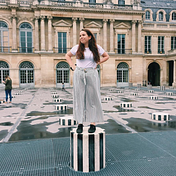The Era of Fake Restaurants
When thinking of technological advances in the twenty-first century your mind might rush towards thinking of the all new iPhone X being announced, but would you think about the impact that technology is having on restaurants. Gone are the days of being recommended the hot spots to eat through word-of-mouth but alas we are in the TripAdvisor era. As a society we do judge a book on its cover, or rather a restaurant on its point ranking on sites like TripAdvisor.
Vice journalist Ooba Butler decided to test TripAdvisor and the general public by trying to make his plain and simple garden shed into the top restaurant in London, the catch was — this restaurant did not exist. Butler wanted to see how far the general public would go to wanting to be somewhere purely because it was the top restaurant.
Butler said “One day, sitting in the shed I live in, I had a revelation: within the current climate of misinformation, and society’s willingness to believe absolute bullshit, maybe a fake restaurant is possible?” (Butler, 2017)
He bought a phone, set up a restaurant and made a TripAdvisor and hey presto; The Shed at Dulwich was in action — or as in action as a fake restaurant could be. Butler enlisted his friends to write fake reviews of his restaurant in an effort to get him up the TripAdvisor rankings. Soon enough The Shed was flying up the rankings and after a couple of weeks it was in the top 10,000s, over the next few weeks the fake restaurant is inundated with people begging to come to the restaurant they’ve heard so much about — even using their hospital jobs or work emails as leverage to get into this highly requested eatery.
On the 1st of November 2017 Ooba Butler achieved his goal, The Shed at Dulwich was number one; but how and why is a restaurant that doesn’t even exist the number one place to go in London. It begs the question do we as a society crave to be at the best places just to please others? The public had read that it was the number one place to be and now felt that they ought to be there as well.
This urge to visit a restaurant that doesn’t exist coincides with the hypodermic needle theory (sometimes referred to as the bullet theory). This theory concludes that the audience is a passive figure and that they are injected with the idea that they ought to believe. Applying this to The Shed at Dulwich it could be read that the TripAdvisor readers have been conditioned that they need to get into the top restaurant and therefore will try to get into the catfish site. (Sullivan, 2009). The internet is a strong influence of the modelling theory. The theory suggests that in some forms of media the receiver will embrace the portrayed behaviour as the ideal form. Applying this to Ooba’s experiment is quite simple, the TripAdvisor readers would look at The Shed being the number one restaurant and consequently believe that in order to be the best form of themselves they ought to be eating at this restaurant. (DeFleur and Dennis, 1998).
Overall, it’s evident that the restaurant industry has been affected through technology specifically through websites such as TripAdvisor due to the power of these reviews can hold over the consumer as well as the impact on the restaurant itself. It could be argued that the internet is too powerful over our minds these days but as Ooba Butler says:
“You could look at this cynically — argue that the odour of the internet is so strong nowadays that people can no longer use their senses properly. But I like to be positive. If I can transform my garden into London’s best restaurant, literally anything is possible.” (Butler, 2017)
References
Butler, O. (2017). I Made My Shed the Top Rated Restaurant On TripAdvisor. Available: https://www.vice.com/en_uk/article/434gqw/i-made-my-shed-the-top-rated-restaurant-on-tripadvisor. Last accessed 5th Oct 2018.
Sullivan, L (2009). The SAGE Glossary of the Social and Behavioral Sciences. USA: SAGE Publications. 55.
DeFleur, M and Dennis, E (1998). Understanding Mass Communication: A Liberal Arts Perspective. unknown: Houghton Mifflin. 52.







